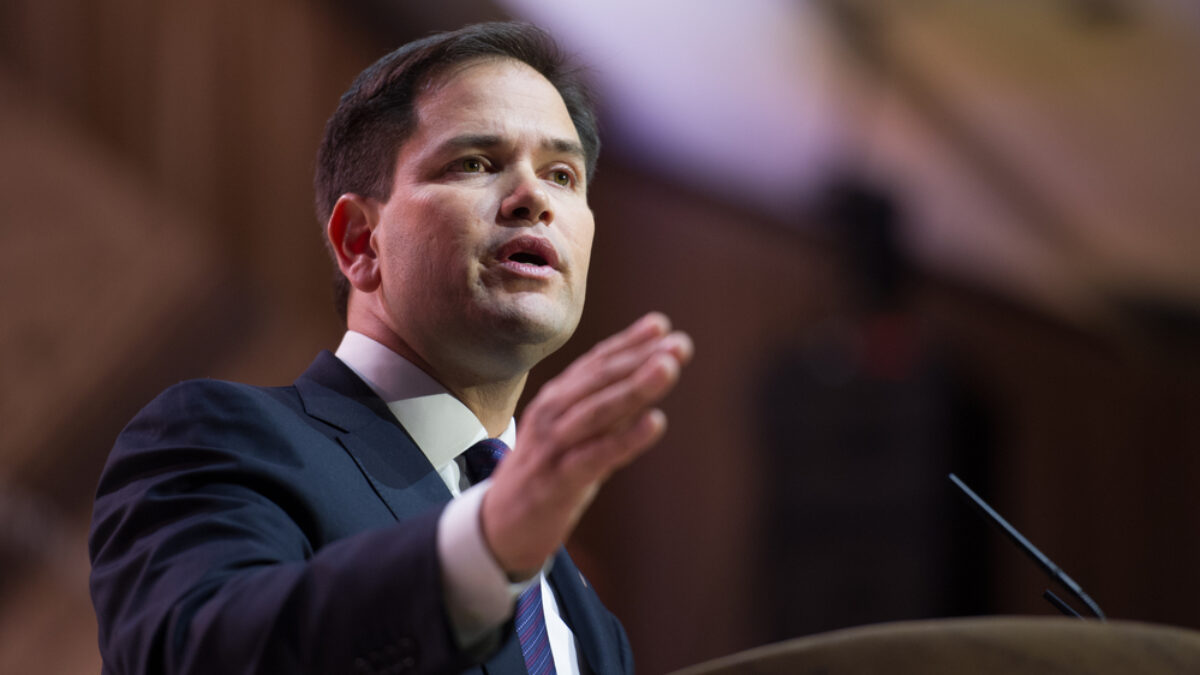Sen. Marco Rubio, R-Fla., wrote a Medium post about how American economic decisions influence the way that the coronavirus disproportionately affects African-American communities, and poses industrialization as a potential solution to “create stable, dignified work.”
Great progress has been made on matters of race in America
But it’s dishonest to pretend it’s no longer a factor
It may manifest itself differently than it once did,but it’s still present
And not just in our hearts, but in our actionshttps://t.co/PGdyuCx0XL
— Marco Rubio (@marcorubio) May 28, 2020
He attributes the higher number of deaths and job losses in African-American communities to the United States’ economic decision to expand trade with China, which he believes has severely impacted those people in the manufacturing field. According to Rubio, more open trade provides more obstacles for minority communities to gain economic opportunity.
“Instead of finding work and forming families, too many working-class Americans feel stripped of opportunity for a chance to move upward in our society,” writes Rubio.
Although he acknowledges that this decision has impacted all different kinds of people, Rubio claims it has a domino effect on African-Americans, especially in the midst of a pandemic.
“Deindustrialization pushes non-college-educated workers into service jobs, many of which are occupied by people of color,” said Rubio. “These roles are highly susceptible to infection, since they’re often face-to-face — the essential workers on whom we depend in this crisis. They’re also vulnerable to job loss, since remote work is rarely an option, and have weak attachment.”
Despite the fact that historical movements increased civil and legal rights for African-Americans, Sen. Rubio argues that “market fundamentalism of shareholder primacy” decreased their profitable opportunities.
“The unbalanced composition of our economy that we have inherited from these decades of misguided economic thinking today bears down with particular force on black Americans,” he said. “No American should be forced to suffer these indignities.”
Rubio also addresses how racism plays a factor in the “white-black earnings gap,” saying that it can’t be overlooked as a contributing issue.
“While it is undeniable that great progress has been made on this front, [racism], it is also dishonest to pretend it is no longer a factor at all,” he said.
The solution to this problem, Rubio says, is to create a more pro-industrial America that seeks to “create stable, dignified work.” He also goes on to promote his support for the Commission on the Social Status of Black Men and Boys and the Small Business Act, which incorporates and acknowledges some of the issues he raised about black workers and black business owners. Rubio also suggests the advancement of “common good capitalism.”
“I do not believe we can judge a nation’s economy as successful unless it creates dignified opportunities for family and community success across its entire population,” he said. “The moral legitimacy of our economy is dependent on the vitality of our communities of color. Likewise, the health and resilience of our economy are dependent on their success.”








